About POS
Nowadays, the POS system is viewed as a point of service. It is a point-of-sale tool that also includes business management and customer attraction features. POS systems are becoming increasingly popular in all business models of varying sizes and industries. If you are wondering what a POS is and how a POS system works, let’s find out in this article.
According to the research Statista in 2021 of the POS terminal market size in the United States, you can see the rapid development of POS systems including POS hardware and POS software in the market.
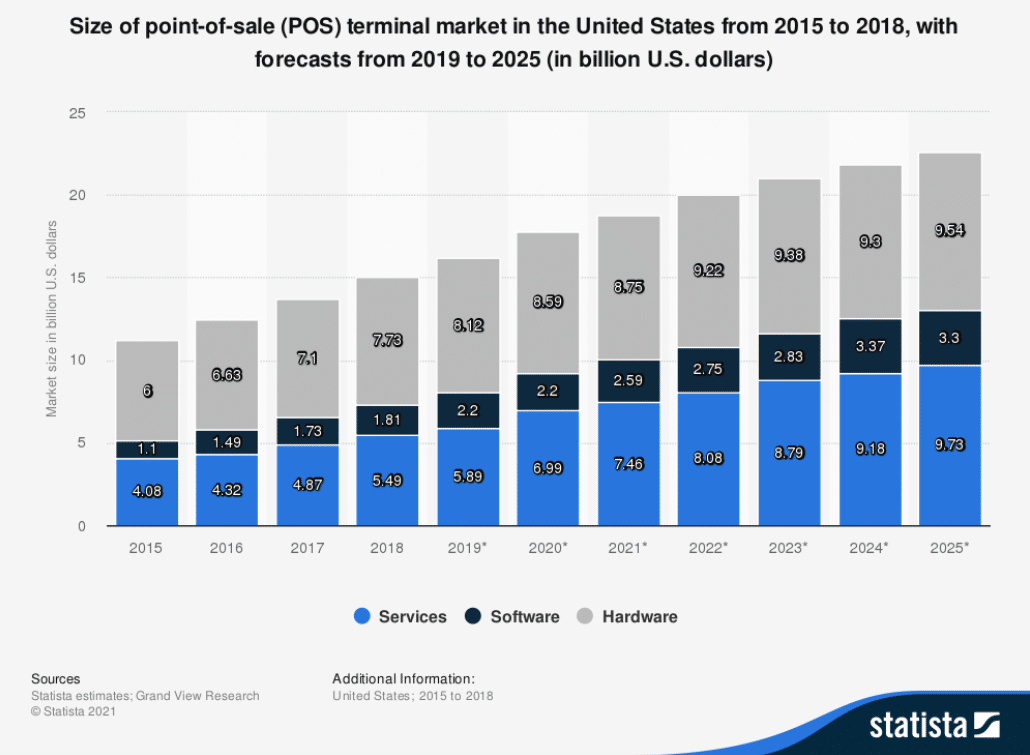
From 2015 to 2018, which forecasted from 2019 to 2025, the research shows that the POS system is becoming more and more widely used. It can be said that the POS system is suitable and necessary for many different types of businesses.
What is POS?
According to Investopedia, Point of sale (POS) refers to a piece of a point of purchase, where a customer executes the payment for goods or services. For example, it can be in a physical store, where POS terminals and systems are used to process card payments or a virtual sales point such as a computer or mobile electronic device.
Currently, when it comes to the term POS, it is implicitly understood that it is a POS system. A modern POS includes hardware, software, and additional functions. It is much different than a traditional point-of-sale, which only does the function of a cash register.
Each POS always has a system or tool to record transactions to reflect the amount of cash and goods coming in and out in a certain period. For instance, it is notebooks, Excel files, or a more professional system such as a POS system.
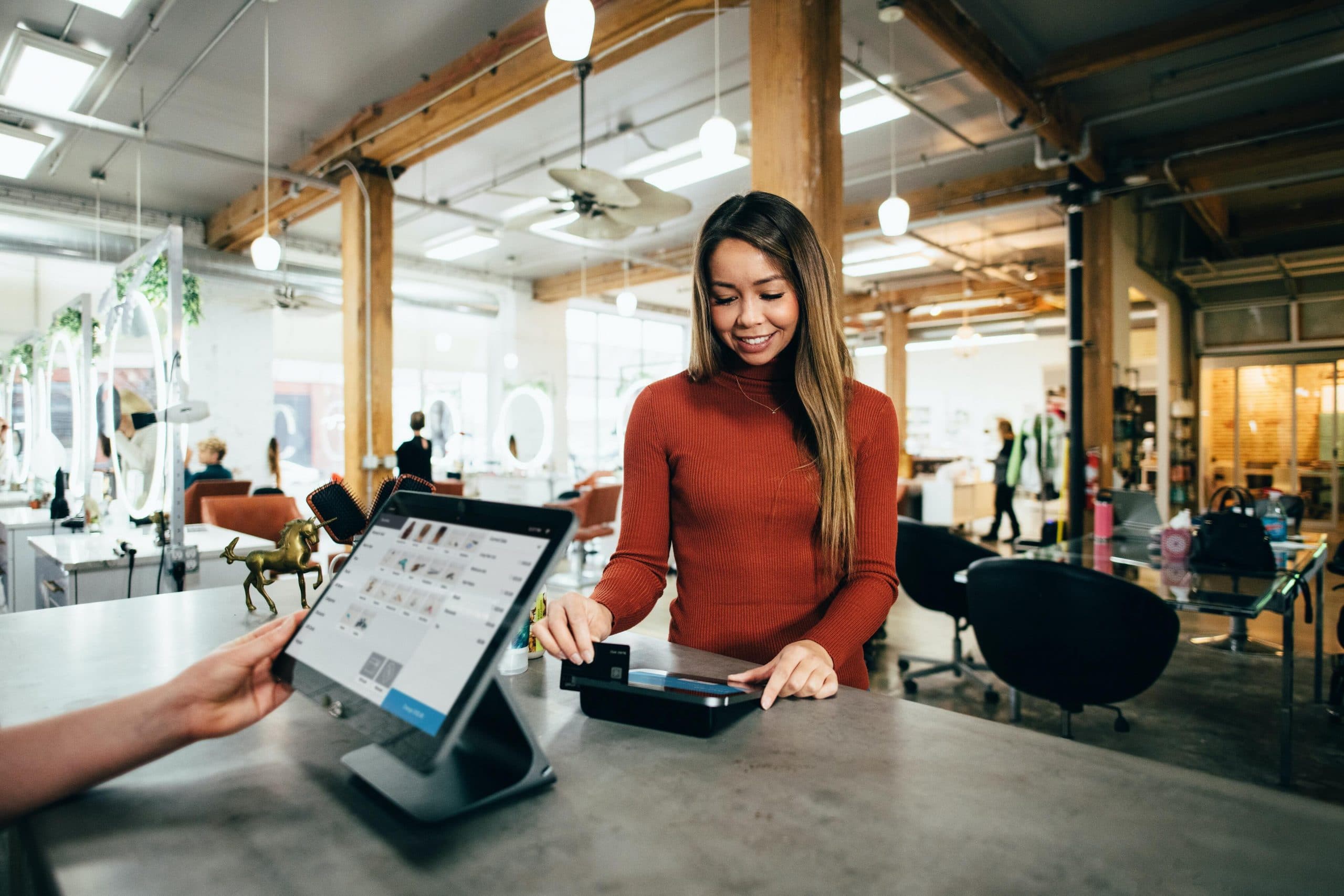
These are what a POS system regularly contains:
- A screen to display information
- A device for inputting all of the data
- Barcode scanner
- A printer to print the receipt
- Cash register
- A software interface to complete the process
Usually, when using a POS system, the seller must use both hardware and software. The software has the effect of storing data, and creating an online store. Meanwhile, the hardware – devices that are connected to the POS software will help you view information visually and support the check-out process.
When does the business need a POS system?
Essentially all businesses need tools for storing goods information and processing customer payments at the physical store. Therefore, it can be said that all types of businesses should have a POS system to handle their business.

As soon as you start a business with items or provide services, you need a POS system. No matter the size of your business is. Very small or very large, the POS system can assist you in managing your business situation. POS software provides numbers and reports on business performance, cash flow changes, inventory status, sales and revenue, real-time profits, and more.
Even if you are just a small business, building the right POS system right from the start is an essential choice for your business now and in the future. You just need to understand correctly and enough about the POS system to be able to make the decision to use the vendor’s POS system that is suitable for your type of business.
How does the POS system work?
POS system and customer purchasing process
The POS system acts like a machine that stores the necessary information at the point of sale. POS system monitors cash flow activities in the business, and captures all fluctuations and real-time changes in products, sales status, and employee activities,… Then, the POS system can proceed to set up the report immediately at any time the administrator needs to review the information.

First, when new products are added to the store’s catalog, the POS system will save detailed information about each product. It is product name, characteristics, image, color, quantity, inventory price, and retail price,… Everything related to the product is recorded and distinguished by the POS system by certain codes.
Next, when the customer arrives and decides to buy, the sales associate can start collecting some more information about them such as gender, age, etc.
The purchase process of a customer at the point of sale can be considered complete when the customer makes the payment. They can choose from a variety of payment methods that the POS system has to offer.
POS system provides the information after the purchase process
In reality, that process seems very short and simple, but the information that the POS system records over time tells us much more than that. Managers can rely on reports from the POS system and know the information about the current activity of the business. It includes the demographic characteristics of customers, which customers are regularly performing buying behavior at the retail store, and can identify the file of target customers of the business.
In addition, recording the purchase process over time will partly reflect the buying behavior of customers, which items are sold in the fastest time, which items bring the most profit, and which items are the most profitable. selling well at certain times of the year,… All of these greatly influence the business decisions of managers and business owners.

Moreover, modern POS systems can often enable enhanced information delivery by connecting data between POS and ERP, CRM, Accounting, and eCommerce Applications,… to give the overview of the entire operation of the business for the manager. With the integration between the POS system at the retail store and the sales channels on the e-commerce platform, the store owner can manage it all in one. Merchandise, inventory, entire sales at customer channels, and checkout process. The operation of the POS system minimizes errors in the process of warehousing, sales, payment, and customer service. Details, accuracy, and fast, that’s how the POS system works.
The benefits of POS system for business
POS systems and especially POS software can help you more than you think throughout the process of sale in retail stores or managing your own business. According to how POS systems work, we can see what POS systems can do for a retail business:
- Enhance Efficiency
- Control your Business Everywhere
- Monitor entire businesses with real-time reports
- Manage multiple locations
- Manage employee performance effectively
- Accept different payment methods
- Customer Loyalty
- eCommerce Integration
- Addressing inventory problem
To have an insight into the advantages that the POS system could bring. You can read detailed information about the benefits of the POS system in this article.
The features of POS system
With all of these advantages that POS systems bring to the business, what are the features of a POS system that you should consider?
When you find the POS software for your business, you should notice some common features for a POS software such as:
- Inventory management
- Employee management
- Customer management and loyalty programs
- Integrations
- Payment Processing
- Reporting
- Multi-channel Management
There are many POS system vendors on the market, offering a wide range of products, and serving different business segments. Thus, you need to review information about the features and bundled services of the POS software that you intend to choose before making a decision.
Some current popular POS for businesses
POS for Retail Store
LS One Retail POS
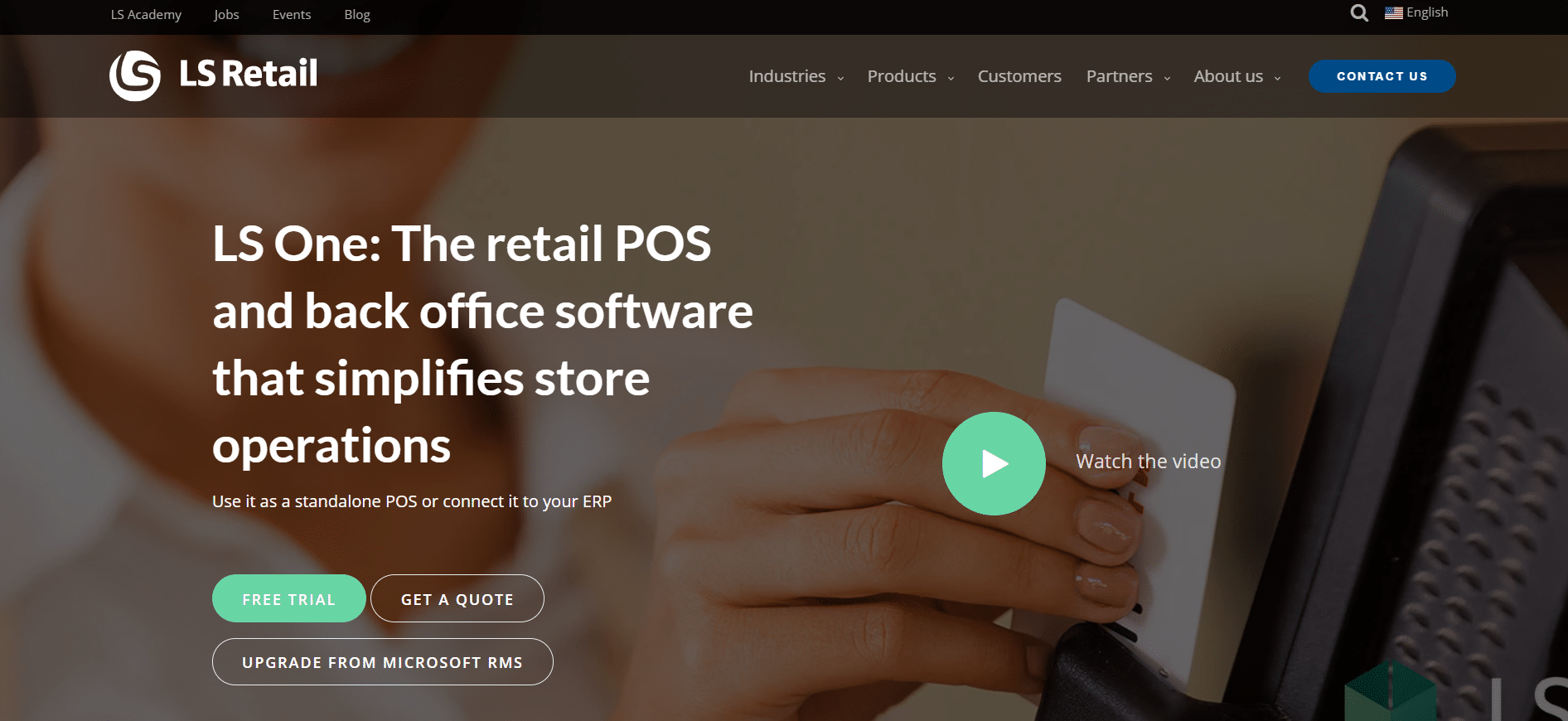
LS One Retail POS, a POS from Australia, was born as a POS-plus-Enterprise Resource Planning (ERP) solution for retail, integrated into Microsoft Dynamics AX. After its decoupling from AX, LS One has functioned as an independent .net POS solution that can be integrated into any ERP software using its very versatile and scalable connection interfaces.
The standard LS One solution comes with retail, hospitality, and forecourt functionality and can run on any Microsoft-based POS terminal (Windows 7 and above) as well as on Android and iOS mobile devices when using the Mobile POS option.
Through a global network of over 100 partners, LS One can serve the majority of its customers in their own countries.
POS for F&B Industry
Square POS
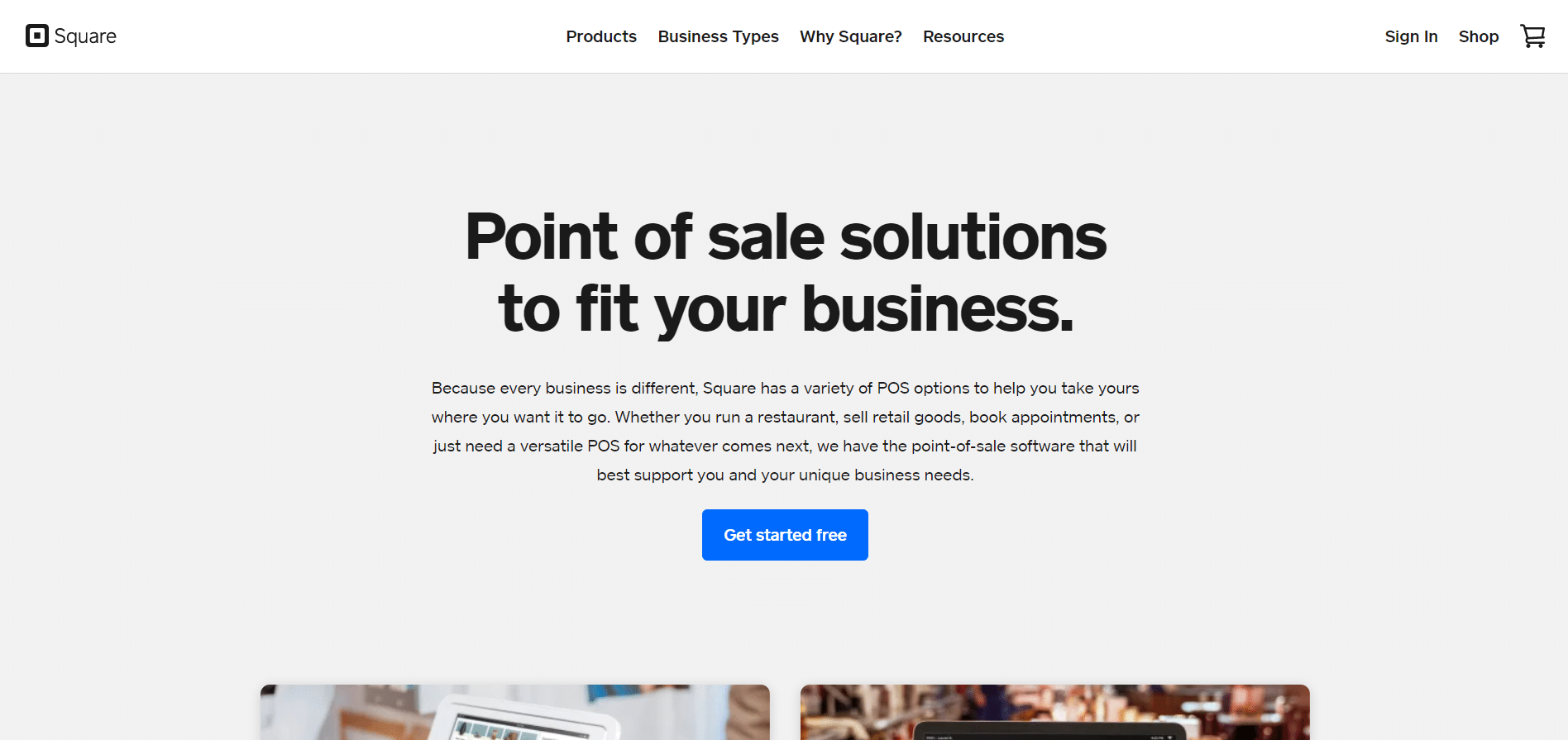
Square is an American POS that designs specialized applications for various industries including Retail, Food, and Beverage, Professional Services (Beauty, Home, Repair, Fitness). Thereby, serving all businesses of all shapes and sizes.
Square POS system is now deployed by 26,748 customers worldwide and gaining over half of the POS market share at 52.04% (Slintel). The statistic implies the brand has a strong reputation and many customers trust their product.
Vend POS

“Vend is the retail management software taking retail to the cloud”. As they introduce themselves, Vend POS is a cloud-based point of sale (POS) and retail management software company based in Auckland, New Zealand.
The very first Vend employees have launched their business in New Zealand in 2010 but they launched it with a global view. And their first handful of customers was from New Zealand, Australia to the US. Next, they started to help customers that they picked randomly all around the world. Up to now, they have worked with clients in over 130 countries.
POS for multiple business models
Lightspeed POS
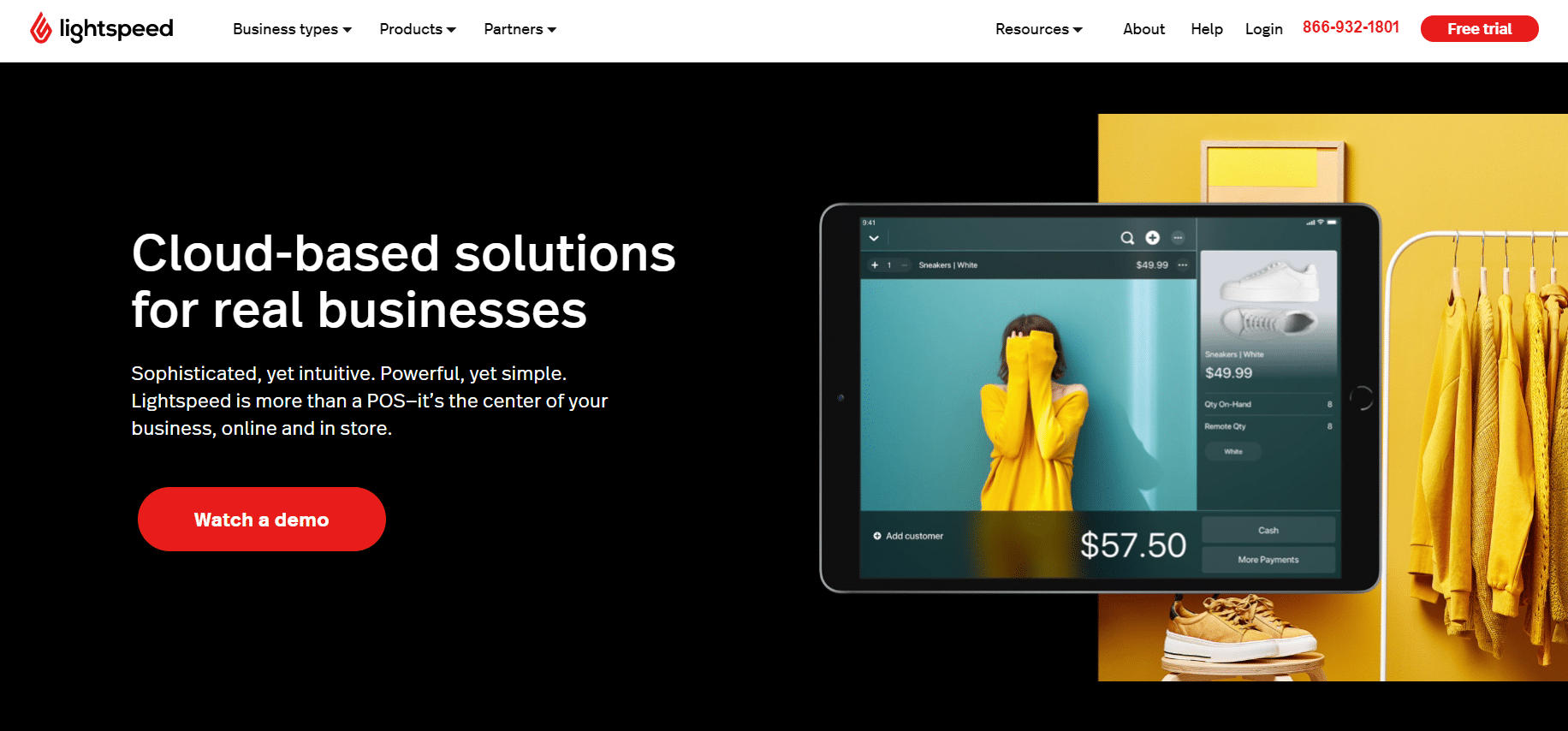
The POS-based in Canada was first established to provide software for brick-and-mortar retailers in 2005 by DaSilva. Profit magazine called Lightspeed POS by the name “Fastest company growing in Quebec” after seeing the expansion of this company.
In 2013, Lightspeed launched its first cloud-based POS, becoming a POS solution for 15,000 customers. By 2014, Lightspeed approached hospitality and proposed Lightspeed POS retail with the Lightspeed Restaurant POS app as a solution for restaurants. After that, the company introduced many more products such as Lightspeed eCommerce, Lightspeed Analytics, Lightspeed Loyalty, and Lightspeed Payments.
Therefore, Lightspeed has become an important solution for retailers of more than 100,000 customer locations. It accounts for approximately $33 billion in gross transaction volume annually, on September 30, 2020.
Shopify POS
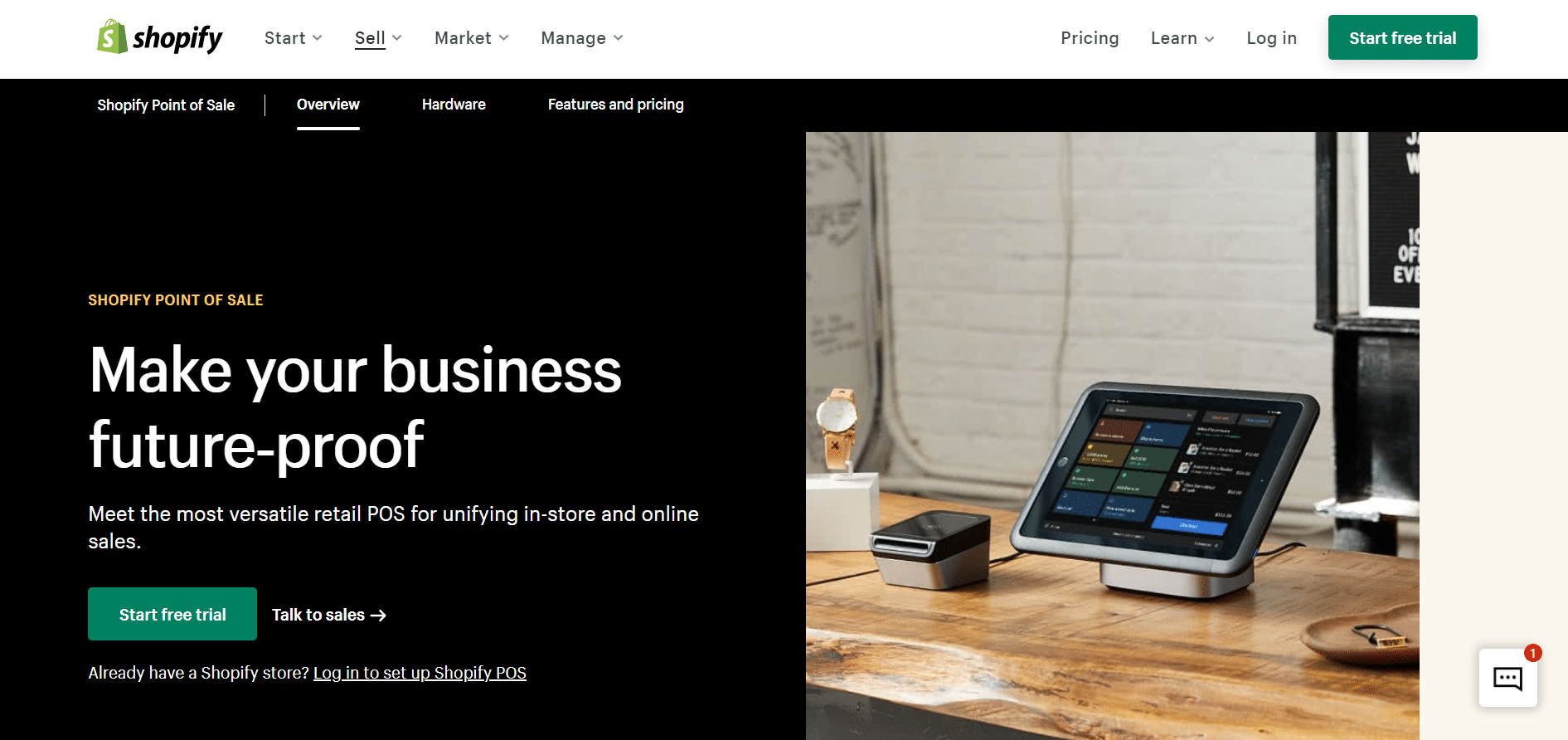
Shopify is one of the world’s leading eCommerce platforms based in Canada trusted by over 1,700,000 businesses worldwide. In 2013, Shopify launched its POS system and started enabling shop owners to manage and sell products almost anywhere.
Since then, 1,000,000 consumers have used Shopify POS. It is an efficient connecting solution between Online and Offline stores, which helps users easily track, manage orders, inventory across multiple sales channels.
Furthermore, to see some important similarities and differences when considering using Lightspeed POS and Shopify POS, you can see details in this article.
Final Words
In conclusion, with the information given in this blog, you can understand POS, how a POS system works, and supports business activities. POS is a useful tool to help businesses save a lot of resources. Most importantly, it helps managers have a better overview of the business situation.
If you have a retail store, a restaurant, a coffee shop,… or any other merchandise business, you might be thinking of using a POS today to visually store valuable data related to your goods and internal customers.
If you have any questions, feel free to contact us.
